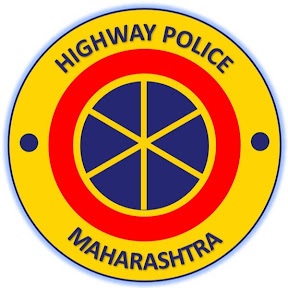- Obey all traffic signals, boards and signs.
- Adhere to permitted speed limits
- Do Not Drink and Drive
- Always carry your drivers license and other important documents such as vehicle registration, insurance, road tax & P.U.C. Certificates.
- Wear seat belts always while in a moving vehicle.
- Do not use your cell phones while driving. In case of an urgency, park on the left and answer the call.
- Use the Indicator or hand signals while changing lanes.
- Irrespective of Right of Way, stay alert and considerate, especially to senior citizens, handicapped and children.
- Avoid sudden braking and harsh acceleration.
- Never use the clutch as a footrest while driving.
- Use Pay and Park islands and avoid parking on the road.
- Do not overload your vehicles with either luggage or passengers.
Road Safety Guideline
- Obey all traffic signals, boards and signs.
- Adhere to permitted speed limits
- Do Not Drink and Drive
- Always carry your drivers license and other important documents such as vehicle registration, insurance, road tax & P.U.C. Certificates.
- Wear seat belts always while in a moving vehicle.
- Do not use your cell phones while driving. In case of an urgency, park on the left and answer the call.
- Use the Indicator or hand signals while changing lanes.
- Irrespective of Right of Way, stay alert and considerate, especially to senior citizens, handicapped and children.
- Avoid sudden braking and harsh acceleration.
- Never use the clutch as a footrest while driving.
- Use Pay and Park islands and avoid parking on the road.
- Do not overload your vehicles with either luggage or passengers.
- Stop at the curb before entering a street.
- Roads must be crossed only at marked crosswalks. Look left-right-left before crossing a street.
- Always walk on the sidewalk.
- In the absence of a sidewalk, walk on the side of the road in the direction facing the road traffic.
- Keep a watch for the drive of a turning vehicle prior to crossing.
- Turn off your headphones while crossing a street to stay aware of the approaching traffic.
- Be extremely careful during gusty weather conditions.
- While crossing a roadway dissecting into handful lanes, be aware of each lane.
- Help the physically challenged and elderly to cross.
- Do not run while crossing.
- When you are accompanying a child whilst crossing, ensure you are holding his/her hand. Teach younger children basic rules of Traffic, in a way that is comprehensible to them.
- Do not Permit children to play on the streets.
- Always obey Road safety rules and regulations stipulated for motor vehicles.
- Look for the traffic signs before you cross signals.
- Drive within the speed limits prescribed. Ideally one should drive at approximately not more than 30 kmph near busy places such as markets and residential areas.
- Keep vehicle fit. A sudden breakdown of the vehicle on the road can cause hardships not only to you but also to fellow drivers and traffic personnel. Besides, towing a four-wheeler to a garage for maintenance works from the middle of the road can cost you a lot. This can be avoided if you regularly check and take care of your vehicle.
- Stop or slow down your vehicle and allow the pedestrians to crossroads at unmanned/signaled Zebra crossings.
- Always wear seat belts while driving four wheelers.
- Avoid rash or negligent driving.
- Do not drink and drive.
- Avoid using mobile phones while driving. Accidents are more common since motorists tend to ride fast at the signals when it turns green and are more likely to ignore the oncoming vehicles or the signal changes if talking on the mobile. In case of an urgent call, park the vehicle to the side of the road and put the brake lights on, and allow other motorists to pass by.
- Turn the brake lights ON before stopping so that the vehicles behind can avoid a collision
Below mentioned advice for crossing roads is especially for children. Children should be taught the safety code and should not be allowed on the road alone and unsupervised, unless they are taught and understand the road safety measures. It is advised that younger children should be supervised by adults while crossing roads. Children learn by example; hence teachers and parents should always follow the code properly while going out with their families.
- Always walk on the footpath only. On roads without a footpath, walk on the extreme right-hand side of the roads.
- Do not be impatient on the road. Do not run or rush.
- Cross only at Zebra crossings, traffic signals, subways, foot over-bridges. In cases where such facilities do not exist, look for a safe place to cross.
- At the signaled junctions, cross only on a clear green signal. If an intersection is controlled by a policeman, traffic warden or RSP cadet, cross only when he signals to do so.
- While crossing between vehicles parked on the side of the road, remember that you are not visible to the moving traffic (because the parked vehicles may be taller than you). Stop as you appear from behind the vehicle and look for a safe gap before crossing. Remember, drivers need plenty of time to see you and to slow down and stop.
- While crossing wide roads that have central islands, always cross in two stages. Cross to the central Island, stop, and cross when the next section is clear.
- While crossing one-way streets, remember that the traffic will usually be moving in several lanes and at higher speeds. Do not cross unless all lanes are clear.
- Never cross a road at a corner/curve, it may happen that a motorist will taking the turn may not see you in time.
- Do not run across the road.
- Parents are responsible for the safety of their children during school journeys.
- It must be ensured that the mode of transport arranged by school or by themselves is safe.
- Parents must play the role of vigilant observers. Note down violations committed by school buses and immediately report to the authorities.
- Parents must participate in P.T.A. meetings and discuss the safety aspects of their children.
- Parents must ensure that the children acquire the right knowledge and skills for safe use of roads. They should teach their children the basic rules of the road, how to walk and cross the road, how to alight and board a bus etc.
- Adults should not allow minor children to drive.
- Parents must also ensure that the right attitude for a law-abiding citizen is imparted to their children by the family.
- Children are very good observers and therefore, parents must set an example by meticulously observing even small traffic rules.
Personal information such as good man’s name and contact details will be made to be made voluntary and optional. This will also be done in the Medicolegal case (MLC) form provided by hospitals.



